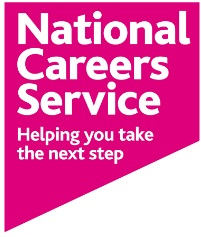I know from personal experience that mental health can affect your progress in achieving your goals. Sometimes it was a real struggle for me as I chased my own dream, but it was through following the tips and advice I am going to share with you in this blog that eventually allowed me to become a professional artist alongside my other profession as a National Careers Service careers adviser.
I understand how difficult it can be to take those first steps towards achieving your work or career goals. The thing that helped me personally was the hardest step and that was taking action and not just keeping my goals as frustrated dreams in my head. These 5 steps will, I hope, help you turn a dream into reality like they did for me.
Taking those first steps can be hard but remember – it can be good to talk through your plans and use others as a ‘sounding board’ for your ideas. Talk to family and friends; having people listen, understand and affirm your work dreams and goals, or who can give you constructive feedback, will give you that extra confidence and motivation to succeed in whatever you want to do. This will help counteract any doubts in your head.
If you don’t have any friends or family to lean on, then try contacting the Samaritans who are professionals who will listen to you and help you talk through your concerns, worries and troubles.
Contact: https://www.samaritans.org
It’s really important to try and find out what career might suit you. You can use the National Careers Service website as a great starting point. Search through a selection of over 800 different careers to access job profiles that will tell you the hours, salary, description, skills needed, and duties associated with a particular role. Take our Skills Assessment to work out what your skills are and then try to match them to a role. If you find you need training or a qualification to access a particular career, you can search for the nearest accredited course near you and possible funding options. https://nationalcareers.service.gov.uk/explore-careers.
There can be many pathways into a particular career, so talk to a professional about the different academic or technical routes that you could potentially take. Speaking to a careers adviser will allow you to get support in reviewing your options. Contact the National Careers Service on 0800 100 900 to arrange a free 1:1 appointment with a qualified careers adviser.
The next step could be to get some valuable experience through volunteering, which is a great way of learning, gaining confidence and building new skills by learning from others with similar interests to you. Volunteering can help you get away from the isolation and the sense of despair you may feel, while giving you valuable experience for your CV.
You can find out more about how to volunteer in your local community here: https://nationalcareers.service.gov.uk/careers-advice/advice-on-volunteering.
If you want to find work or start a career in your chosen interest, then the next step could be to undertake a training course, go to college or eventually attend university to gain a recognised qualification. Whatever you want to do, if you’re going to find sustainable work in the career of your choice, a qualification might improve your prospects by demonstrating your skills or knowledge.
Visit Find a Course for details of 100s of courses to help you learn new skills or change jobs – including general skills that apply to all sectors as well as more specialised skills.
If you are looking for work and suffering mental health problems or have a disability, there are professional organisations that can help you get into work and will understand your needs. If you have a Jobcentre representative, speak to them about referring you to the right organisation, or try contacting these specialist services like the ones mentioned below.
When looking for job vacancies, there are a variety of jobsites available to help you find work where you can upload your CV and view available jobs, for example:
Social media can also be a great platform for helping you find a job and connect with people who can help develop your career. Employers and recruiters make extensive use of social media, giving out information about their organisations as well as actually posting job vacancies. Therefore, it makes sense to incorporate social media into your overall approach to job searching. Check out these guides:
How to use Facebook to get a job
How to use Twitter to get a job
How to use LinkedIn to get a job
The National Careers Service website has a variety of resources to help you find work. You can access help with writing CVs, cover letters, application forms, interview skills, job search, apprenticeships, and much more. You can find our advice articles here: https://nationalcareers.service.gov.uk/careers-advice#getting-a-job
And remember, you can also speak to one of our qualified careers advisers who can give you impartial and motivational advice to help you make informed decisions and take your next step. Call the National Careers Service helpline on 0800 100 900 or chat to us online. Good luck!
